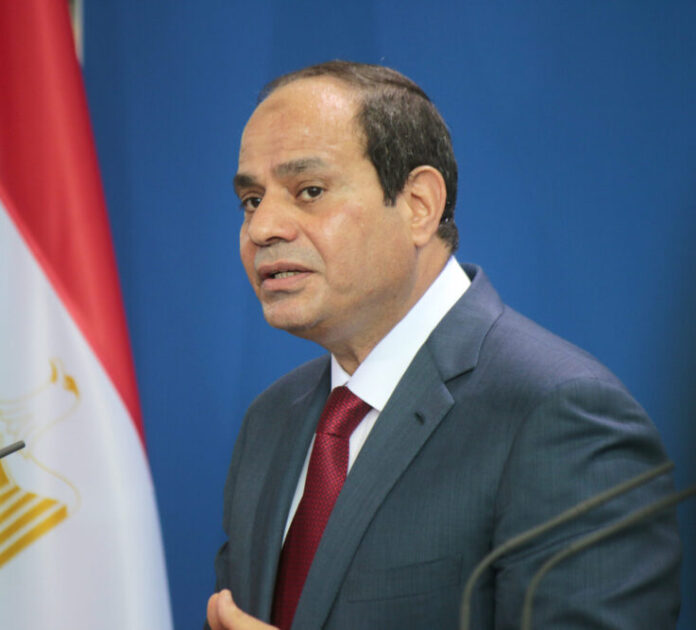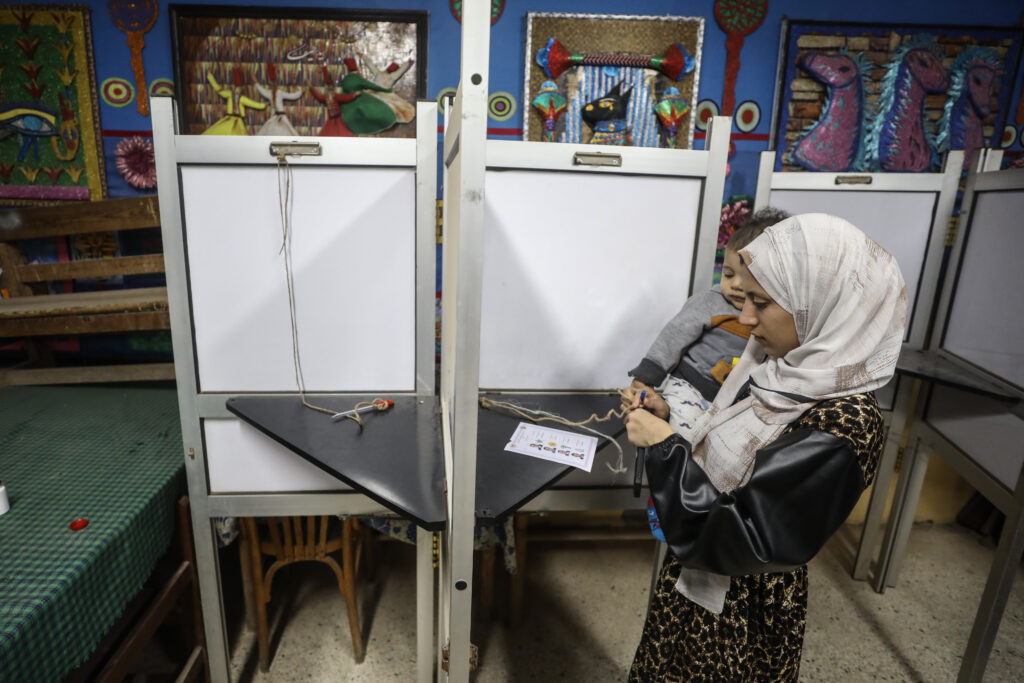
In elections which are widely considered to be a sham, Egyptian President Abdel-Fattah al-Sisi won 89.6% of votes during last week’s presidential elections, according to the electoral commission.
Commission chief Hazem Badawy said 44.7 million Egyptians cast ballots during last week’s elections, out of 67.3 million eligible voters, with a turnout of 66.8%.
“Sisi obtained 89.6 percent of the valid votes,” Badawy added during a press conference held in Cairo.
This means that he will serve until at least 2030, after which he is constitutionally barred from running again.
According to the election commission, presidential candidate Hazem Omar came second to Sisi with 1.9 million votes or 4.5% of the total votes, followed by Farid Zahran with 1.7 million votes (4%), and Abdel-Sanad Yamama with 822.000 votes (1.9%).
Leading opposition candidate Ahmed Tantawy had pulled out months before last week’s poll, claiming intimidation and violence against his campaign camp.
Egyptian opposition groups say that they cannot operate effectively due to a constant crackdown on dissent and with the media in Sisi’s pocket.
Subscribe to our newsletter and stay updated on the latest news and updates from around the Muslim world!
Human rights campaigners have also complained about tight security restrictions and say it is increasingly difficult to document alleged abuses.
Egyptian authorities deny the allegations.
Egypt’s faltering economy and the war in Gaza were the key electoral issues.
Mr Sisi, who is 69, first became president in 2014, a year after he had led the military’s overthrow of his predecessor Mohammed Morsi, as well as a massacre of Muslim Brotherhood supporters.
Under his leadership, huge sums of money have been spent on big infrastructure projects. Roads have been expanded and flyovers built, and a new capital costing billions of dollars has been constructed near Cairo but is barely inhabited.

Critics say this has drained much of the country’s economic resources and created unprecedented levels of debt that have crippled the economy.
In the past nine months, the Egyptian pound has lost more than 50% of its value against the U.S. dollar.
Official figures show that nearly 30% of Egypt’s 100 million population lives below the poverty line.
Egypt’s position regarding the Israeli aggression on Gaza since October 7 has been somewhat contradictory.
Cairo initially employed conventional diplomatic language, warning of the “dangers of escalation” and calling for international intervention to stop the Israeli attacks.
But as the magnitude of Israeli violence against Gaza became evident, Egypt’s official stance evolved to include sharper terms.
Egypt’s representative at the United Nations Security Council, Osama Abdelkhalek, condemned the Israeli actions as a “systematic plan to kill and displace the Palestinian people.”
Egypt also issued a statement warning against Israeli demands to relocate Gaza residents, considering it a “grave violation” of international humanitarian law.
Sisi’s discourse has also introduced ideas like the demilitarisation of a future Palestinian state, deviating from established international resolutions.
He has also complied with Israeli conditions for aid entry, engaged in media mobilisation to support Gaza but stopped demonstrations when they exceeded prescribed limits.






















